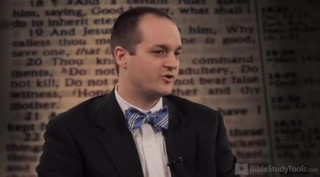- Recent Translations
- All Translations
Yóudàshū 1:10
Share
Settings
Yóudàshū 1:10 Meaning and Commentary
But these speak evil of those things which they know not,
&c.] Which may more particularly refer to dignities, ( Jude 1:8 ) ; either angels, who are little known, and not at all, but by revelation, and yet were blasphemed, or evil spoken of by these men; either by ascribing too much to them, as the creation of the world; or by saying such things of them, as were below, and unworthy of them, as their congress with women or civil magistrates; these men were ignorant of the nature, use, and end, of magistracy and civil government, and so treated it with contempt; or the ministers of the Gospel, whose usefulness was not known, at least not acknowledged by them, and so became the object of their scorn and reproach: or it may refer more generally to the Scriptures, which false teachers are ignorant of, and yet speak evil of; either by denying them to be the Word of God, or by putting false glosses on them; and so to the several parts of the Scriptures, as to the law, the nature, use, and end of which they are not acquainted with; and therefore blaspheme it, by not walking according to it, or by denying it to be of God, and to be good, or by making the observance of it necessary to justification and salvation; and also to the Gospel, the doctrines and ordinances of it, which they speak evil of, despise and reject, not knowing the nature, value, and design of them:
but what they know naturally as brute beasts:
man originally had a large share of natural knowledge, and there is in man still, notwithstanding the fall, by which his knowledge is impaired, a natural knowledge of God, and of things natural, civil, and moral; and there is a sensitive knowledge in man, which he has in common with the brutes, and which is here meant: and such was the brutish sensuality of these men, that
in those things they corrupt themselves;
and act as brute beasts without shame and fear; yea, worse than brute beasts, as in the acts of unnatural lust, mentioned in ( Jude 1:7 ) ; whereby they corrupt both their souls and bodies, and so shall be destroyed, and perish in their corruption.


